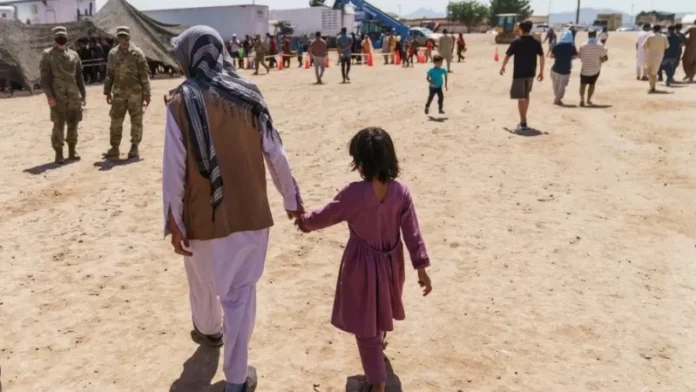Washington, D.C. – In a significant move, U.S. lawmakers have included an additional 12,000 Special Immigrant Visas (SIVs) for Afghans who supported the U.S. mission in Afghanistan in a $1.2 trillion package of spending bills. This extension of the program has been welcomed by advocates, although they have also expressed disappointment that it falls short of their request for 20,000 SIVs.
President Joe Biden signed the much-awaited spending bills into law on Saturday, just hours after Congress approved them, effectively avoiding a partial government shutdown.
The president of Global Refuge, a refugee resettlement agency, Krish O’Mara Vignarajah, wrote in a statement that it is “encouraging” to see bipartisan support from Congress on this issue. However, she also expressed concern that it took the threat of a government shutdown for the Biden administration and Congress to take action.
The SIV program is a congressionally authorized program with a cap of 38,500 available visas. It provides a pathway to permanent residence and, eventually, U.S. citizenship for Afghans who have been employed by or worked for the U.S. government in Afghanistan. The application process for SIVs, including decision-making and approval, can take up to three years, while resettlement through the refugee program can take up to five years. Both programs require applicants to begin the process outside of the United States.
Representative Michael McCaul, a Republican and chairman of the House Foreign Affairs Committee, praised the addition of 12,000 SIVs, calling it a “great start” to fulfilling the promise of evacuating Afghans who have worked for the U.S. government in Afghanistan. He also acknowledged that the U.S. had left behind many of its Afghan partners, including interpreters, during the chaotic evacuation in August 2021.
The Biden administration and Senate Republican lawmakers had initially requested 20,000 SIVs.
In a statement, Shawn VanDiver, president of the U.S.-based NGO #AfghanEvac, called these visas “essential” for providing opportunities for Afghans who have risked their lives to support the U.S. mission in Afghanistan. He also highlighted the importance of ensuring the SIV program remains viable.
The United States and its allies completed their withdrawal from Afghanistan in August 2021, ending nearly 20 years of war. In the final weeks of the evacuation, nearly 130,000 people were evacuated, including approximately 88,500 Afghan nationals who have since resettled in communities across the U.S. through Operation Allies Welcome.
VanDiver also stressed the need to pass the remaining provisions of the Afghan Allies Protection Act (AAPA) of 2023 and the Afghan Adjustment Act, which would provide a pathway to permanent residency for tens of thousands of Afghans who were admitted to the U.S. for humanitarian reasons in 2021 and 2022.
While acknowledging that the additional 12,000 SIVs would not be enough to help all of the Afghan allies, VanDiver stated that it would provide some relief and show the U.S.’s commitment to not leaving them behind.
Vignarajah also emphasized the importance of the remaining provisions of the AAPA and the Afghan Adjustment Act, stating that they would reduce the demand for Special Immigrant Visas from Afghan evacuees seeking long-term stability in the U.S. She urged Congress to continue working towards securing protections for vulnerable Afghans who need to seek refuge in the U.S. and prevent them from living in legal limbo.
In conclusion, the additional 12,000 SIVs for Afghans is a positive step towards fulfilling the U.S.’s promise to its Afghan partners. However, there is still work to be done to ensure their long-term stability and provide a pathway to permanent residency and citizenship. The bipartisan support for this issue is encouraging, and we urge Congress to continue working towards securing protections for vulnerable Afghans. Let us not forget those who risked their lives to support the U.S. mission in Afghanistan and ensure they are not left behind.

